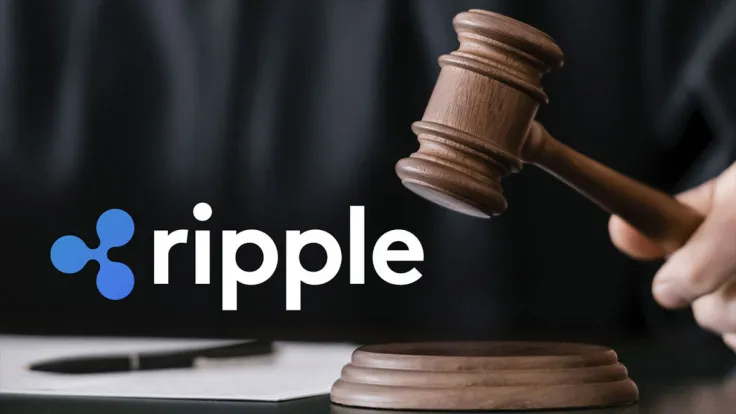
Disclaimer: The opinions expressed by our writers are their own and do not represent the views of U.Today. The financial and market information provided on U.Today is intended for informational purposes only. U.Today is not liable for any financial losses incurred while trading cryptocurrencies. Conduct your own research by contacting financial experts before making any investment decisions. We believe that all content is accurate as of the date of publication, but certain offers mentioned may no longer be available.
In December 2020, the SEC filed a lawsuit against Ripple and two of its executives: CEO Bradley Garlinghouse and co-founder Christian Larsen.
The SEC alleges that the Ripple executives recklessly disregarded the facts, which "allegedly made XRP amount to the unregistered sale of securities."
Following this, the two executives moved to have the individual lawsuits filed against them dismissed in April 2021.
While the judge denied the SEC's request to strike Ripple's fair defense in March of this year, the individual defendants' motion to have the lawsuit against them dismissed was also denied.
According to market observers, if Ripple loses, co-founder Chris Larsen might have to pay $450 million and CEO Brad Garlinghouse $150 million in disgorgement penalties.
Striking facts
According to CryptoLaw founder John Deaton, Ripple executives stand better chances in the summary judgment than the SEC. He put forward 11 facts in support of this argument. This includes the fact that SEC enforcement lawyers were allowed to own and trade XRP until March 2019.
WERE RIPPLE EXECUTIVES RECKLESS - 🧵
— John E Deaton (@JohnEDeaton1) December 7, 2022
In order for @chrislarsensf & @bgarlinghouse to lose the individual claims made against them, the judge has to conclude, as a matter of law, the two executives were reckless in not knowing #XRP was a security. Not negligent - but reckless! https://t.co/76yQuhiV3x?from=article-links
In 2014 and 2015, the USGAO classified XRP as a "virtual currency," along with FinCEN and the DOJ, forcing Ripple to register XRP sales with FinCEN rather than the SEC. Also in 2015, the CFTC stated that Bitcoin and other similar cryptocurrencies are "properly classified commodities."
Another striking fact is that in 2019, the SEC published its Framework for Digital Assets, stating that any crypto asset that can immediately be used for payments and as a substitute for fiat currency "is unlikely to satisfy Howey," which is the XRP use case.
In 2013, according to Deaton, Chris Larsen gave a presentation to the SEC, CFTC and other agencies about Ripple's plans to disrupt the global payment system by utilizing XRP.
Deaton also added that in June 2018, SEC enforcement lawyers wrote an XRP Howey memo analyzing whether XRP satisfied the Howey test and, in the end, did not recommend enforcement or a cease-and-desist order.
According to Attorney Jeremy Hogan, the SEC has a completely different (and harder) legal standard to prove regarding the Ripple executives, which is the same scenario the CryptoLaw founder John Deaton seems to be painting.

 Dan Burgin
Dan Burgin Vladislav Sopov
Vladislav Sopov